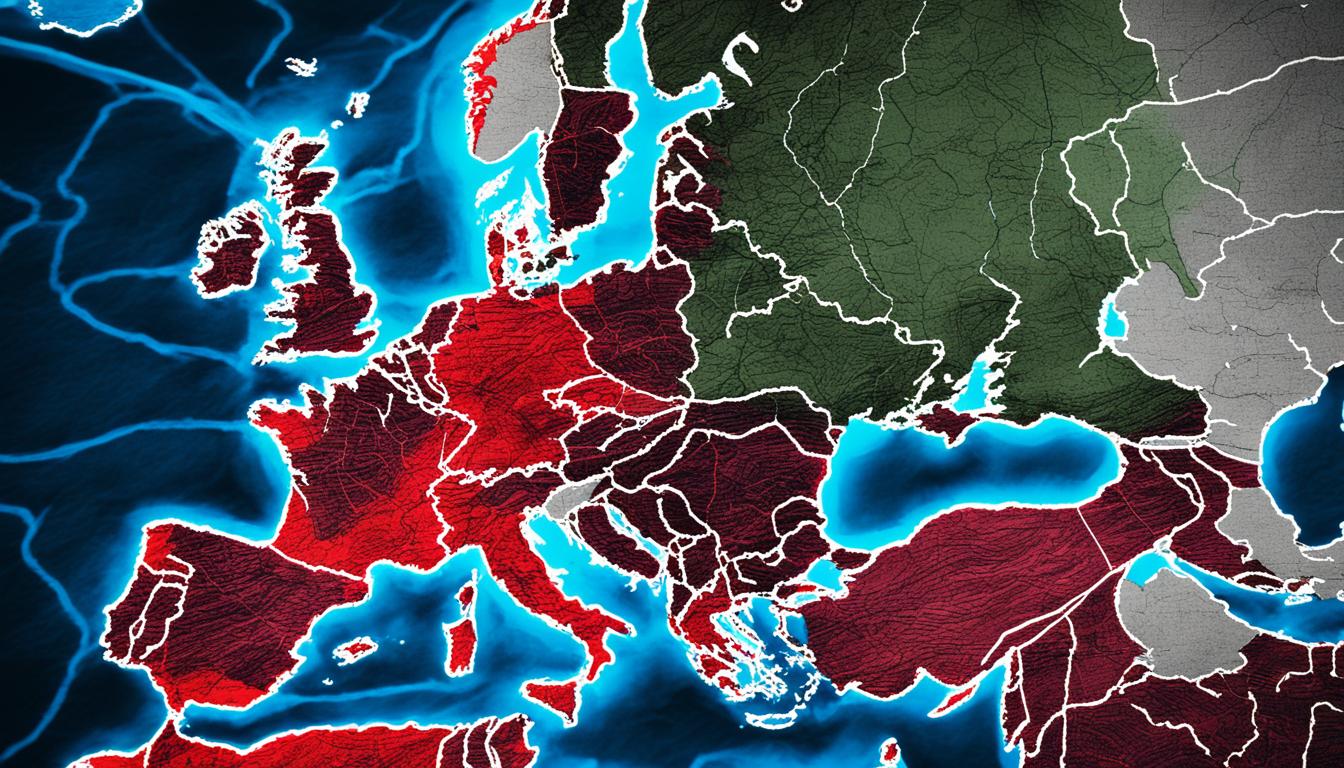challenges of combating drug trafficking in europe
Drug trafficking is a very lucrative business, worth €30 billion annually in the EU. The European Drug Report 2024 shows that there are many substances available, often more potent. The challenges in the fight against drug trafficking are great and require joint work by police and judges.
Drug trafficking has a major impact on health, governance, the economy and more. Authorities are overwhelmed by the increase in drug trafficking cases . EU Member States are struggling to allocate resources to the fight against these criminal groups.
Criminal networks in Europe benefit from open borders and different legal frameworks . This makes the fight against drug cartels more difficult. A joint effort is needed to tackle this problem.
Key points
- Drug trafficking remains a highly lucrative market in Europe, worth an estimated €30 billion a year in the EU alone.
- The drug market in Europe is characterised by the high availability of a wider range of, often more potent, substances.
- The impact of drug trafficking affects health, governance, the economy and other areas, overwhelming police and judicial authorities.
- Organised criminal groups take advantage of open borders and different legal frameworks in the EU.
- Coordinated efforts and effective law enforcement strategies are needed to combat cross-border drug trafficking.
The lucrative drug trafficking market in Europe
Drug trafficking is a very profitable business in Europe. It generates huge profits for organised crime groups . The value of the illicit drug market in the European Union exceeds 30 billion euros per year. This lucrative business attracts many criminal organisations, with more than a third involved in drug trafficking.
Drug trafficking mainly moves across borders. Criminal groups use sophisticated transport and distribution networks. This way, they manage to move drugs across Europe and maximise their illicit profits . In addition, these profits infiltrate the legal economy , causing crimes such as money laundering.
The profitability of drug trafficking is due to several factors:
- High demand for illicit substances in European markets
- High prices that consumers are willing to pay
- Ability of criminal groups to adapt and evade detection
- Corruption and institutional weakness in some transit and destination countries
Drug trafficking is a very lucrative business for organized crime . They move large amounts of money and constantly adapt to evade the authorities.
To combat this lucrative market , Europe needs a coordinated response. Strengthening police and judicial cooperation between countries is key. Tackling illicit financial flows from drug trafficking is also important. Only a comprehensive and sustained approach can weaken the criminal structures that profit from this business.
| Country | Estimated value of the drug market (in millions of euros) |
|---|---|
| Germany | 8.200 |
| Italy | 7.900 |
| France | 6.700 |
| Spain | 5.600 |
| United Kingdom | 5.300 |
Source: Estimates based on data from Europol and the European Monitoring Centre for Drugs and Drug Addiction (EMCDDA).
Impact of drug trafficking on European society
Drug trafficking affects Europe greatly, impacting health, economy and governance . In Spain, 27% of the population consumes drugs, according to a report. This shows how serious the problem is in the country. Although there is no specific data on the impact in Europe, it is clear that the consequences are great. This is highlighted in this article on the challenges of drug trafficking.
Consequences for public health
Drug trafficking directly affects public health . It contributes to the rise of addictions and related problems. Less than 20% of people with addictions receive treatment, which shows the need to improve rehabilitation services .
Women have limited access to addiction treatment , indicating gender disparities. This is a major challenge.
Effects on the economy and governance
Drug trafficking impacts Europe’s economy and governance . Corruption and political destabilization are serious problems in Afghanistan and West Africa. This highlights the need to tackle drug trafficking globally.
The war on drugs strategy has failed, increasing the purity of drugs and decreasing their prices. This demonstrates the need for new strategies.
Drug trafficking affects poor people the most, as they have the least access to treatment. This underlines the importance of addressing socio-economic inequalities and ensuring access to health services for all.
Organized crime groups and their adaptability
Organised crime groups in Europe adapt well to open borders and varied legal frameworks . This allows them to exploit weaknesses in law enforcement in different countries. They are very flexible and quick to find new opportunities.
Having achieved success in some countries, these groups are looking for new markets. This takes them to South America, Oceania, Asia and Africa. These regions may not be prepared to face this challenge.
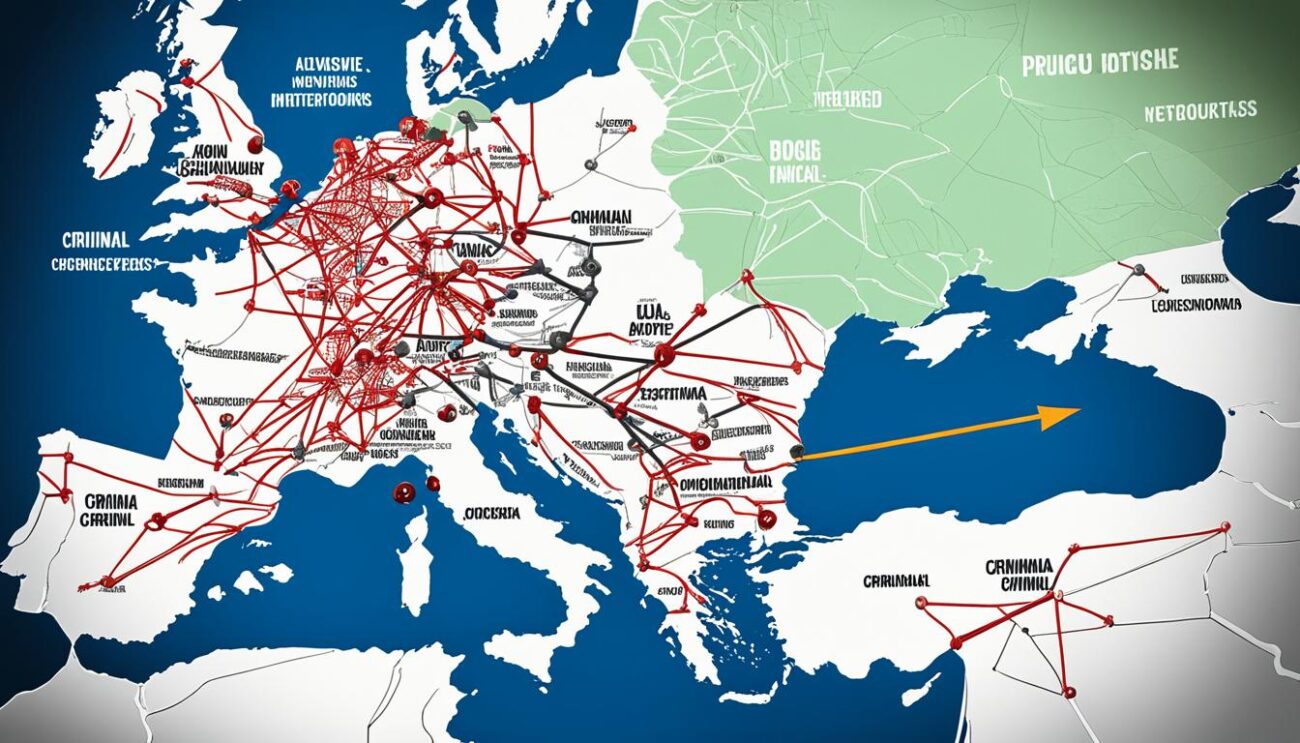
Taking advantage of open borders and different legal frameworks
West and East Africa have seen an increase in drug use and trafficking. New maritime drug routes have appeared along the East African coast. Methamphetamine production is also growing in West Africa.
Some facts about organized crime and human trafficking in Africa:
- IOM says at least 20,000 migrants are detained in Libya. Italy has seen a 35% increase in sea arrivals this year, with more than 61,000 people arriving.
- In 2017, 3,091 people died trying to cross the Mediterranean to Europe.
- This year, 165,000 migrants have arrived in Europe from West Africa, a decrease of 100,000 compared to last year.
Traffickers in Libya demand ransoms from the families of captured migrants. Payments can range from $8,000 to $10,000. They use social media to recruit migrants with false promises of employment in Europe.
UN calls on social media to help prevent extortion and recruitment of African migrants to Libya
Organized crime , led by drug trafficking, is a major challenge for Latin America and the Caribbean. Criminal factions are looking for new havens and markets. This allows them to integrate into the international market and launder money.
Over the past decade, routes and criminal organisations have changed. Although state efforts have improved, illegal economies remain profitable. Demand for drugs has grown in Europe, especially synthetic drugs and pharmaceuticals.
Countries that were once transit points are now local markets. The region is also seeing an increase in illegal activities such as illegal mining and piracy. These activities complement drug trafficking.
Government responses based on force have not stopped organised crime. Instead, they have taken activities into new territories. This shows that repression is not enough to combat transnational crime.
International judicial cooperation: a critical need
Judicial authorities in several countries are working together to combat drug trafficking. This is thanks to the European Union Agency for Criminal Justice Cooperation ( Eurojust ). It is key to tackling drug trafficking, as many activities cross borders.
Organized crime groups use legal differences between countries to operate. That is why judicial cooperation is essential.
The organized crime industry moves between 1.6 and 2.2 trillion dollars a year. This includes drug trafficking, weapons, people and more.
Illegal trafficking has serious impacts on health, development and corruption. It can also cause conflict and damage governance. The United Nations views organised crime at sea as a global problem.
Maritime security in Spain and the EU view organised crime at sea as a major risk. More collaboration with Eurojust is expected in the coming years.
| Year | Cocaine base seizures (kg) | Cocaine hydrochloride seizures (kg) | Marijuana seizures (kg) |
|---|---|---|---|
| First half of 2017 | 6,015 | 1,861 | 9,148 |
Illicit trafficking remains a major challenge to maritime security. Judicial cooperation and measures such as labour and telecommunications regulations can combat it. This can change the business of organised crime groups .
The role of Eurojust in the fight against drug trafficking
Eurojust is key in the fight against drug trafficking in Europe. Since 2002, it has improved cooperation between EU countries. This helps to combat organised crime, including drug trafficking.
Eurojust’s support is vital for local authorities. It helps to dismantle drug trafficking networks in Europe. Thanks to Eurojust, prosecutors and law enforcement agencies share information and effective strategies.
Support in drug trafficking cases between 2017 and 2020
From 2017 to 2020, Eurojust supported authorities in 1,838 drug trafficking cases . These cases involved several countries and required international coordination to be investigated and prosecuted.
| Year | Drug trafficking cases supported by Eurojust |
|---|---|
| 2017 | 432 |
| 2018 | 459 |
| 2019 | 483 |
| 2020 | 464 |
Eurojust analysis shows that drug trafficking is a major threat to Europe. International judicial cooperation is key to tackling it.
Expectation of an increase in requests to Eurojust in the coming years
Organised crime groups are improving their strategy. More assistance from Eurojust is expected in the coming years. This highlights the importance of preparing resources and improving Eurojust’s capabilities.
International legal cooperation is crucial to prosecuting crimes such as terrorism, which rely on money laundering and document forgery.
In conclusion, Eurojust will remain essential to the fight against drug trafficking . It will help overcome legal and operational challenges. Thus, drug traffickers will be brought to justice, regardless of borders.
New Psychoactive Substances (NPS) and precursors: legal and operational challenges
The emergence of new psychoactive substances (NPS) and chemical precursors poses major challenges for authorities in Europe. These substances are not controlled internationally. They can be dangerous to public health due to their harmful effects and rapid access to the market.
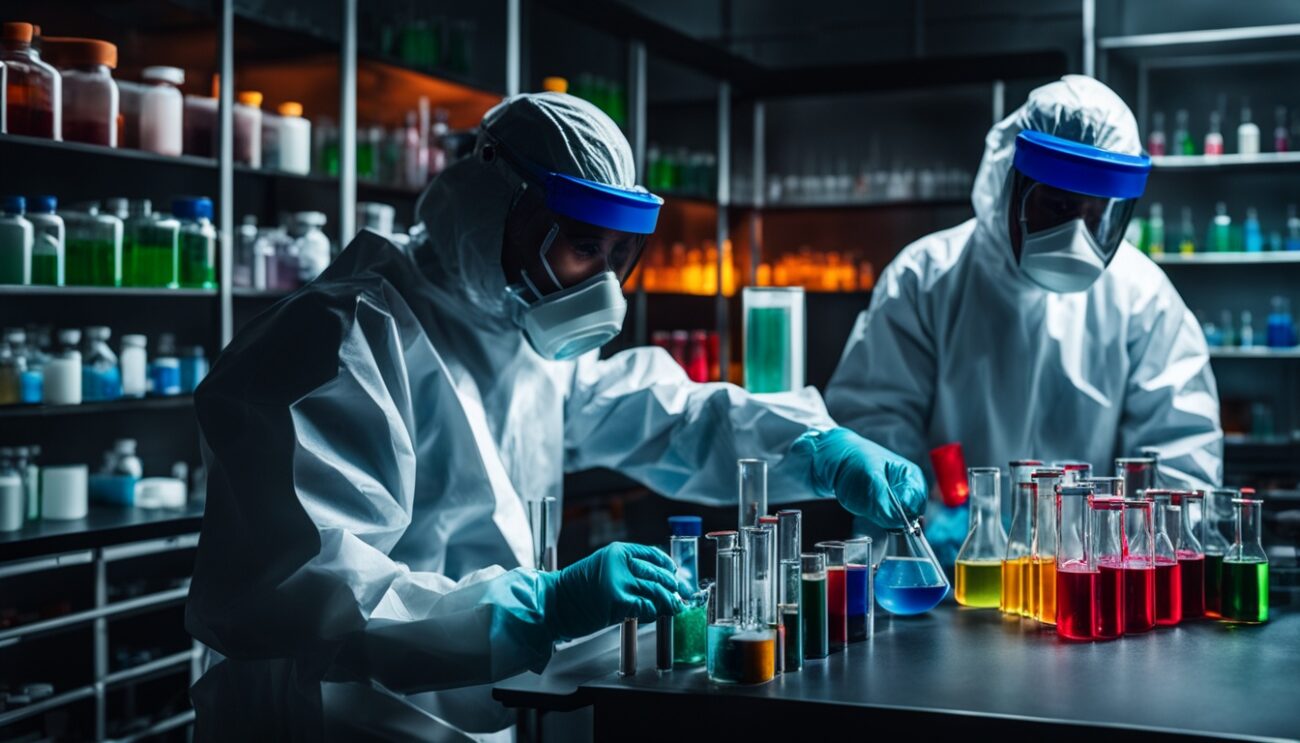
According to the International Narcotics Control Board, NPS are emerging rapidly, making their control and regulation difficult. Although their use is not well known, their consumption can be significant and dangerous to health.
“EU efforts to address legal challenges with regard to NPS and precursors must continue and be strengthened. As long as judicial authorities continue to face operational challenges , Eurojust is the right organisation to support the judiciary.” – Annual Report of the International Narcotics Control Board, 2016.
The Board stresses the importance of international cooperation . The Latin American Group for Studies on International Criminal Law (Gledpi) has published a book on the legal framework of drugs in Latin America. This book highlights the need for international cooperation .
| Year | Report |
|---|---|
| 2015 | Statistics on Narcotics and Psychotropic Substances |
| 2016 | Reports published by the International Narcotics Control Board |
| 2017 | Forecast of global needs for controlled substances |
In conclusion, new psychoactive substances and precursors pose legal and operational challenges . A coordinated and comprehensive response by the authorities is needed. The European Union should strengthen its efforts, with the support of Eurojust, to overcome legal obstacles and enhance international cooperation .
Cooperation with non-EU countries
To combat drug trafficking, it is essential to work together beyond the EU’s borders. Collaborating with countries outside the EU is essential to fully address this major challenge.
Cooperation agreements and points of contact
Eurojust plays a key role in strengthening cooperation with countries outside the EU. Through agreements and contact points , the exchange of information and coordination of investigations is improved.
These agreements allow Eurojust to work more closely with authorities in other countries. They facilitate mutual cooperation and legal assistance. Contact points are a direct link between Eurojust and the authorities, improving communication and data exchange.
Potential for national research
Cooperation with countries outside the EU benefits both international and national investigations. By sharing knowledge and experience, local authorities can improve their fight against drug trafficking .
Eurojust encourages the participation of non-EU countries in joint operations. This gives local authorities access to additional resources, such as intelligence information. This can significantly boost their investigations.
| Initiative | Aim | Results |
|---|---|---|
| International operation against illicit arms trafficking | Combating illegal arms trafficking between Latin America and the European Union | Seizure of more than 30 firearms, inspection of more than 194,000 packages and arrest of 21 individuals |
| Birregional Operational Working Group to combat drug trafficking | Enhancing collaborative efforts in the fight against drug-related crimes between Europe and Latin America | Launch of the working group with the aim of strengthening operational cooperation |
| THE PACT | Provide technical assistance to 18 Latin American countries to combat organized crime, including drug trafficking, terrorist financing and other illicit activities | Strengthening police services responsible for combating organised crime in Europe and Latin America |
In conclusion, cooperation with countries outside the EU is key in the fight against drug trafficking. Through agreements, contact points and support for investigations, Eurojust and its partners work to dismantle criminal networks and protect communities.
Controlled deliveries: Navigating the fragmented European legal landscape
Controlled deliveries are key to combating drug trafficking in Europe. But the fragmented European legal landscape complicates judicial cooperation. The lack of specific regulation at EU level complicates these cross-border operations.
Eurojust’s assistance is invaluable in cases of cross-border controlled delivery. It helps judicial authorities overcome legal obstacles between Member States. Its experience and network of contacts ensure efficient coordination and the exchange of information.
The fragmentation of the European legal landscape makes cross-border controlled deliveries difficult . But Eurojust can help overcome these challenges by coordinating and supporting national authorities.
Despite Eurojust’s efforts, more harmonisation and specific regulation for controlled deliveries in the EU are needed. This would make judicial cooperation easier, allowing authorities to act effectively against drug trafficking.
In conclusion, tackling the European legal landscape on controlled deliveries requires coordination and support from bodies such as Eurojust. Effective judicial cooperation and harmonisation of laws are key to combating drug trafficking in Europe.
Conflicts of jurisdiction: avoiding negative repercussions in parallel investigations
In Europe, fighting drug trafficking is a major challenge. One problem is avoiding conflicts of jurisdiction in parallel investigations . These conflicts can cause duplication of efforts and inefficiency. They can also violate the ne bis in idem principle , which says that you cannot try someone twice for the same crime.
Eurojust plays a key role in assisting in cases of conflicts of jurisdiction . Eurojust prosecutors and judges work with national authorities. They seek solutions and coordinate investigations efficiently.
In difficult cases, Eurojust may recommend setting up a joint investigation team (JIT). JITs allow authorities from several countries to work together. They can then share information and evidence quickly and efficiently.
“Early and continuous coordination between national authorities is essential to avoid conflicts of jurisdiction and ensure that parallel investigations are conducted efficiently and effectively.” – Eurojust Prosecutor
Eurojust may also make recommendations or requests to national authorities. These recommendations help to make informed decisions. This prevents conflicts of jurisdiction.
In conclusion, early coordination and cooperation are key to avoiding jurisdictional conflicts. With the support of Eurojust, authorities can fight drug trafficking effectively. This ensures that those responsible are brought to justice.
The importance of financial investigations and asset tracking and recovery
Financial investigations are key in the fight against drug trafficking in Europe. Tools such as tracing, freezing and asset recovery help to dismantle criminal networks. Eurojust supports professionals in these investigations, providing practical assistance and promoting cooperation between countries.
International cooperation is essential in these investigations. The United Nations Convention against Corruption (UNCAC) promotes collaboration to combat corruption. This includes tracing, freezing and confiscating assets , and preventing money laundering.
Use of Asset Recovery Offices (ORA) and Financial Intelligence Units (FIU)
ORAs and FIUs are key in financial investigations . They facilitate the exchange of information and coordination between authorities. Their knowledge in the analysis of financial flows and the identification of illicit assets is crucial.
“Relevant parties are encouraged to make full use of Asset Recovery Offices (AROs), Financial Intelligence Units (FIUs) and other networks. Eurojust supports practitioners at all stages of financial investigations and in the practical implementation of the new Regulation on freezing and confiscation orders (Regulation (EU) 2018/1805).”
Collaboration between ORA, UIF and other agencies is vital to combat drug trafficking. By sharing financial intelligence and coordinating actions, they can identify and dismantle criminal networks. As a result, the assets of their illicit activities are recovered.
| Research Technique | Application in Drug Trafficking Cases |
|---|---|
| Electronic or physical surveillance | Monitor suspicious activities and collect evidence |
| Covert operations | Infiltrating criminal networks to obtain information from within |
| Seizures | Seize drugs, cash and other trafficking-related assets |
| Asset tracking | Identify and locate assets derived from criminal activities |
In conclusion, financial investigations and asset tracing and recovery are key in the fight against drug trafficking. International cooperation, the use of ORA and FIU, and various investigative techniques are essential to dismantle criminal networks and deprive them of their illicit profits .
Drug trafficking in the digital environment
In the digital age, drug trafficking has found new ways to operate. It uses the darknet , cryptocurrencies and digital communication . A study says that 60% of criminals have moved from traditional to digital because of technology and globalization.
The European Judicial Network on Cybercrime (EJCN) is key in the fight against online drug trafficking . It offers support in investigations that cross borders. Eurojust encourages professionals to seek help from the EJCN when necessary.
New technologies are growing rapidly and jeopardising the effectiveness of the fight against crime. The Internet facilitates communication and coordination between traffickers. If it is not adapted, the fight against digital crime could fail.
Digital evidence, such as phone and social media data, helps build strong cases. This supports testimonies in investigations into human trafficking and smuggling.
To combat digital criminals, strategies and tools are being developed. These include:
- Using technology to identify traffickers and extract suspicious transaction data.
- Using technology at borders to combat illicit trafficking.
- Data mining to track online movements of victims and traffickers.
- Collaboration between the private sector and law enforcement agencies, such as Tech Against Trafficking (TAT).
| Type of criminal activity | Percentage of cases involving cyber activities |
|---|---|
| Drug traffic | 38% |
| Money laundering | 25% |
| Smuggling | 20% |
In conclusion, digital drug trafficking poses challenges for authorities. Adapting strategies and fostering international cooperation is key to combating this problem.
Best practices identified in cross-border judicial cooperation
Cross-border judicial cooperation is key to combating drug trafficking in Europe. Best practices have been identified that improve collaboration between judicial authorities. These practices include the creation of joint investigation teams (JITs) and the use of Eurojust coordination centres .
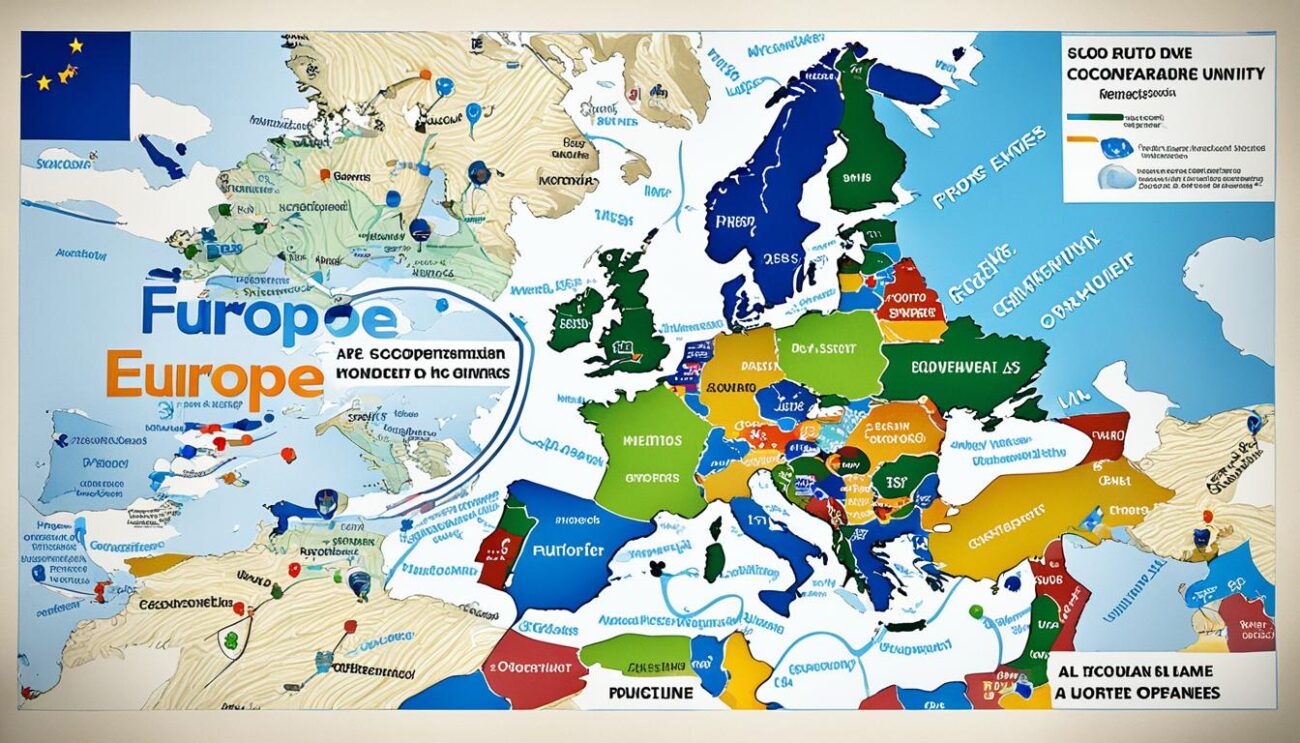
Joint Investigation Teams (JITs)
Joint investigation teams (JITs) are essential in judicial cooperation. These teams bring together judicial and police authorities from several countries to investigate drug trafficking. They facilitate efficient coordination, rapid exchange of information and effective collection of evidence.
It is recommended that a joint investigation team (JIT) be set up in drug trafficking cases . Eurojust offers support at all stages of a JIT, from negotiation to financing.
ECIs have important benefits:
- Improves coordination between authorities from different countries
- Allows you to share information and evidence efficiently
- Facilitates joint investigations and operations
- Provides access to resources and experience from other countries
Eurojust Coordination Centres
Eurojust Coordination Centres are crucial for judicial cooperation. They act as contact points for national authorities, offering support and coordination in cross-border investigations and proceedings.
| Year | Number of drug trafficking cases supported by Eurojust |
|---|---|
| 2017 | 1862 |
| 2018 | 2095 |
| 2019 | 2271 |
| 2020 | 2434 |
Eurojust Coordination Centres offer several services:
- Coordination meetings between judicial authorities are organized
- They assist in drafting and executing requests for legal assistance
- They facilitate the secure exchange of information and evidence
- They support in the resolution of jurisdictional conflicts
By using best practices , such as ECIs and Eurojust coordination centres, judicial authorities improve their fight against drug trafficking. This fosters greater collaboration and efficiency, leading to more successful investigations and prosecutions.
The importance of prompt referral to Eurojust in cross-border cases
The fight against international drug trafficking requires early and effective cooperation. Eurojust plays a key role, coordinating and communicating between EU States. Referring to Eurojust from the outset can be crucial to the success of investigations.
By involving Eurojust from the outset, new opportunities open up. Eurojust can identify international connections, share vital information and coordinate operations. This early collaboration maximises Eurojust’s resources and expertise.
Strengthening the international component of national drug trafficking cases
Referrals to Eurojust not only improve cross-border investigations. They also enhance the international dimension of national cases. By working with Eurojust, authorities gain access to experts and resources that offer new perspectives.
In conclusion, Eurojust encourages authorities to contact their national members early in drug trafficking cases. This early collaboration is key to strengthening investigations and combating drug trafficking in Europe.
